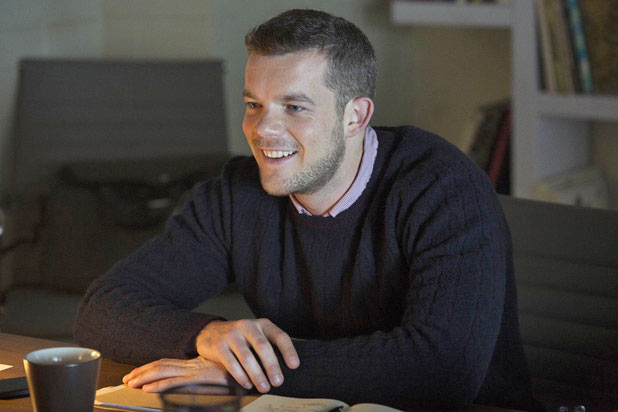Recently, the actor Russell Tovey, star of HBO’s “Looking,” drew some criticism for comments that were construed as being phobic toward effeminate gay men. They weren’t. All he basically said was that he could have ended up effeminate but he’s glad he didn’t, which makes sense when you think: A. Growing up in the 1980s and ’90s and hearing about the AIDS crisis must have bred a surge of homophobia; B. From interviews, it seems like his father hasn’t always been the most forward with gay acceptance; and C. His “butchness” has probably been able to land him more roles in his career and enabled him to be adaptable to many parts. And yet, people are branding him the worst gay ever (hello, Log Cabin Republicans, anyone?) after one “inarticulate quote” — and come on, who hasn’t had one of those?
A little background on me and why I wanted to write about this: Growing up, I didn’t have a lot of gay people — fictional or otherwise — whom I could see as positive examples or who resonated with me; they were just unintentionally absent. When I first started to come to terms with the fact that I could be gay, I didn’t see anyone after whom I could particularly feel comfortable modeling myself. Most were uncomfortably flamboyant (there’s nothing wrong with that; I’m one of the most flamboyant gays you could meet — but, at 13, that was a little much for me to be comfortable with). That is, until I researched a cute British actor whom I had seen once on “Doctor Who,” and who was starting to get into his wonderful series “Being Human.”
In his Wikipedia article, I found out he was gay. But what was more interesting and oddly potent was his advice to young gay people: “The only thing I can give to young gay people is that, when I was growing up, there were no role models that were blokey, that were men. Everybody was flamboyant and camp, and I remember going, ‘That’s not me, so even though I think I am gay, I don’t think I fit into this world.’”
And I started to feel 1,000-percent more comfortable in my skin.
Representation, of any format, is immensely important to every group of people. From seeing Lt. Uhura in “Star Trek” to having the first female black astronaut to any number of nameless empowering tales, representation is never something to be underestimated. Before my suits, before my flirtiness, before me as I am, I wanted — no, needed — to know I didn’t have to necessarily stand out to be me. And here was sexy, at-first-glance-straight-seeming Russell Tovey, who gave me the confidence not to conform to what society expected of me at a time when I felt like I only had a limited view of what I could be. He gave me a world of confidence and helped me come out.
Tovey was hardly being fem-phobic. I just see it as: “I’m butch and glad.” And guess what? So am I. Why shouldn’t the more-butch have a Russell Tovey to look up to? While the LGBT community does have a right to keep on the lookout for phobias and bigotry, we shouldn’t be making snap (and these were very snap) judgments about not only our allies, but also our own community members, especially ones who have done nothing but spread nice things and support through social media.
There are people in this world whose greatest joy would be to ruin the lives of people in the LGBT community — and they deserve having our frustration vented toward them. Look at the god- (ha!) awful “religious-freedom” law in Indiana, or even anyplace else in the world (and that’s a lot of places) where just being gay can make you lose your job or is even a crime. These are the things we should be attacking — not a strong, inspiring ally who had a self-admitted “inarticulate quote.” I know we’re tired of hearing Bible quotes, but “let he who is without sin, cast the first stone” seems to apply.
And to Mr. Tovey, if you are reading this: Thank you for being my role model. Thank you for helping me to be comfortable in my own skin. Thank you for showing me that I could be gay, happy, sexy and whomever I want. You changed this dapper, suited, out-there gay’s life for the better. Please keep being your bull-dog-loving you — to inspire others, as you have inspired me. Thank you.
Sean Morris is a junior at Science Leadership Academy.
